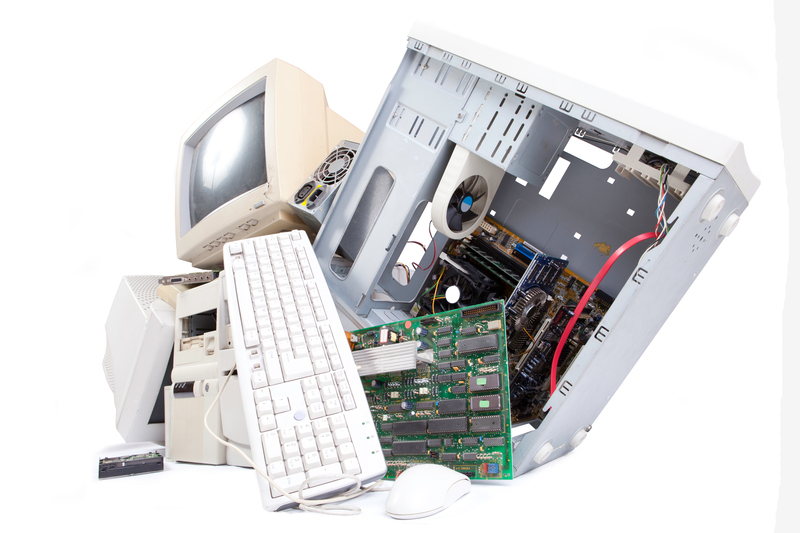Minimalist Living: Declutter for a Calmer Mind
In a world teeming with endless consumption and relentless digital noise, the minimalist living movement has emerged as a beacon guiding people toward simplicity and mental clarity. But what does it truly mean to embrace minimalism, and how exactly can decluttering your life lead to a calmer, more focused mind? In this comprehensive guide, you'll discover the philosophy behind minimalist lifestyles, actionable steps to reduce clutter, and the profound benefits that come from clearing space in your surroundings--and your thoughts.
What Is Minimalist Living?
Minimalist living is more than just having fewer belongings; it is a strategic approach to life that promotes intentionality. The essence of minimalism lies in prioritizing the things that truly matter and letting go of the excess--both physically and mentally. By adopting a minimalist lifestyle, individuals strive to declutter their environments, schedules, and often their minds, leading to a simpler, more meaningful existence.
- Intentional ownership: Only keep items that serve a purpose or bring genuine joy.
- Quality over quantity: Shift focus from acquiring more to appreciating what you have.
- Mindful consumption: Consider each purchase carefully and intentionally.
Variations of Minimalism
Whether you're drawn to a minimalist lifestyle for environmental, financial, or mental health reasons, there are various approaches you can take, such as:
- Physical minimalism: Focuses on decluttering physical possessions.
- Digital minimalism: Streamlines technology use and digital clutter.
- Emotional minimalism: Involves letting go of negative relationships or unnecessary commitments.

The Link: Decluttering and a Calmer Mind
Multiple studies show a strong link between clutter and increased stress. In contrast, a clean, organized space is correlated with lower cortisol levels, improved focus, and enhanced creativity. So, how exactly does minimalist living produce these mental health benefits?
The Science Behind Decluttering
Humans have a limited capacity for information and sensory input. When our surroundings are filled with unnecessary items, our brains are under constant pressure to process everything in view. This mental overload can spark anxiety and procrastination. Removing clutter, therefore, can free up mental bandwidth, allowing us to concentrate and relax.
- Less visual distraction: The brain can focus more easily.
- Fewer decisions: Less time spent searching for or managing items.
- More time and energy: Shifted from organizing to productive and enjoyable activities.
Getting Started on Your Minimalist Journey
Ready to experience the holistic benefits of minimalist living? Here's how you can declutter for a calmer mind step by step.
Step 1: Set a Powerful Intent
Before you begin tossing items, reflect on your reasons for pursuing minimalism. Is it mental clarity, financial freedom, more time, or a desire for aesthetics? Clarifying your goals will help you stay motivated throughout your decluttering journey.
Step 2: Start Small--One Space at a Time
Attempting to overhaul your entire home overnight can be overwhelming. Begin with a single drawer, closet, or digital folder. Witnessing progress in one area will inspire you to tackle others.
- Dedicate 15-30 minutes daily to decluttering a specific space.
- Use boxes labeled "Keep," "Donate," "Trash," and "Unsure."
- Progress at your own pace--sustainable minimalism is a marathon, not a sprint.
Step 3: Ask Critical Decluttering Questions
As you sort through possessions, ask yourself:
- Do I use this item regularly?
- Does it serve a functional or aesthetic purpose?
- Would I repurchase this today?
- Is it connected to meaningful memories?
If the answer is "no," it might be time to let it go.
Step 4: Organize What Matters
For the items you choose to keep, invest time in orderly storage solutions. Everything should have its place. This step prevents clutter from returning and maintains your calm, minimalist space.
- Transparent storage containers for easy access
- Labeling shelves and drawers
- Designate a "home" for frequently used items
Step 5: Mind Your Digital Clutter
Minimalist living isn't limited to physical belongings. Evaluate your smartphone, laptop, and online life:
- Delete unused apps and files
- Unsubscribe from unnecessary emails and newsletters
- Organize photos and documents into clear folders
- Take regular digital detoxes for a mental reset
Benefits of Minimalist Living
Once you declutter, you'll start to notice an array of benefits that extend far beyond your physical environment. Here's how minimalist living can contribute to a calmer mind and improved quality of life.
1. Reduced Stress and Anxiety
A minimalist lifestyle minimizes sources of visual and mental stress. With less clutter, your space feels more open and breathable, giving your brain one less thing to process. According to studies, individuals who maintain uncluttered homes experience less anxiety and better sleep.
2. Increased Focus and Productivity
An orderly environment translates into an orderly mind. By eliminating excess distractions, you enhance your ability to concentrate, whether you're working from home or enjoying leisure activities.
3. Improved Finances
Minimalist living encourages mindful consumption--you buy less, spend less, and focus on quality items. This leads to cost savings and prevents unnecessary financial stress.
4. Greater Appreciation for What You Own
Owning fewer things allows you to value and utilize what you keep. You may find yourself investing in higher-quality objects, treating them with more care, and finding joy in simplicity.
5. Environmental Impact
By consuming less and discarding responsibly, minimalists often produce less waste and reduce their ecological footprint. This aligns with sustainable living, another movement growing in popularity alongside minimalism.
Common Minimalist Living Myths Debunked
Despite its rising popularity, minimalist living is often misunderstood. Let's address three common myths:
- Myth 1: Minimalism means owning as little as possible. - Truth: It's about owning only what adds genuine value and eliminating the unnecessary, not deprivation.
- Myth 2: Minimalism requires a neutral, stark home. - Truth: Minimalist spaces can include color and decor; the key is that each element is intentional.
- Myth 3: Minimalism is only for single people or small households. - Truth: Individuals, families, and even businesses can all benefit from the principles of decluttering and simplicity.
Tips for Maintaining a Minimalist Mindset
Once you've made the initial effort to declutter and simplify, how do you keep from slipping back into old habits? Here are some ongoing strategies to maintain your minimalist lifestyle:
- Practice the "one in, one out" rule: For every new item brought in, remove an old one.
- Regularly review possessions and commitments to ensure they still serve your current needs.
- Refocus on your "why" for adopting minimalism when tempted to accumulate more.
- Schedule quarterly or seasonal decluttering sessions to keep your space in check.
- Limit exposure to advertising and social media that encourages mindless consumption.
Incorporating Minimalism Beyond Your Home
While physical decluttering is a powerful first step, try applying minimalist principles to other areas of life for even greater peace of mind:
- Schedule: Eliminate unnecessary tasks and create more white space in your day.
- Relationships: Surround yourself with positive, supportive influences.
- Work: Focus on high-impact projects and reduce multitasking.
- Digital Life: Be intentional about time spent online and the digital content consumed.

Minimalist Living and Mindfulness
People often find that decluttering their physical and digital spaces helps pave the way for a more mindful and present daily life. Minimalist living naturally encourages you to slow down, appreciate each moment, and savor experiences instead of things.
- Practice gratitude for your home and belongings
- Embrace slow living--enjoy meals, walks, and routines without rushing
- Limit commitments so you can give your full attention to what matters
Conclusion: Embrace Minimalist Living for a Calmer Mind
Minimalist living is not a trend, but a conscious choice to simplify, focus, and reclaim your time and mental wellbeing. By decluttering your life--from your environment to your calendar--you set the stage for a calmer, more content mind. Start with one small step, and experience how less truly can be more.
Are you ready to let go and live lighter? The journey to decluttering for a calmer mind starts today--because your peace of mind is worth it.